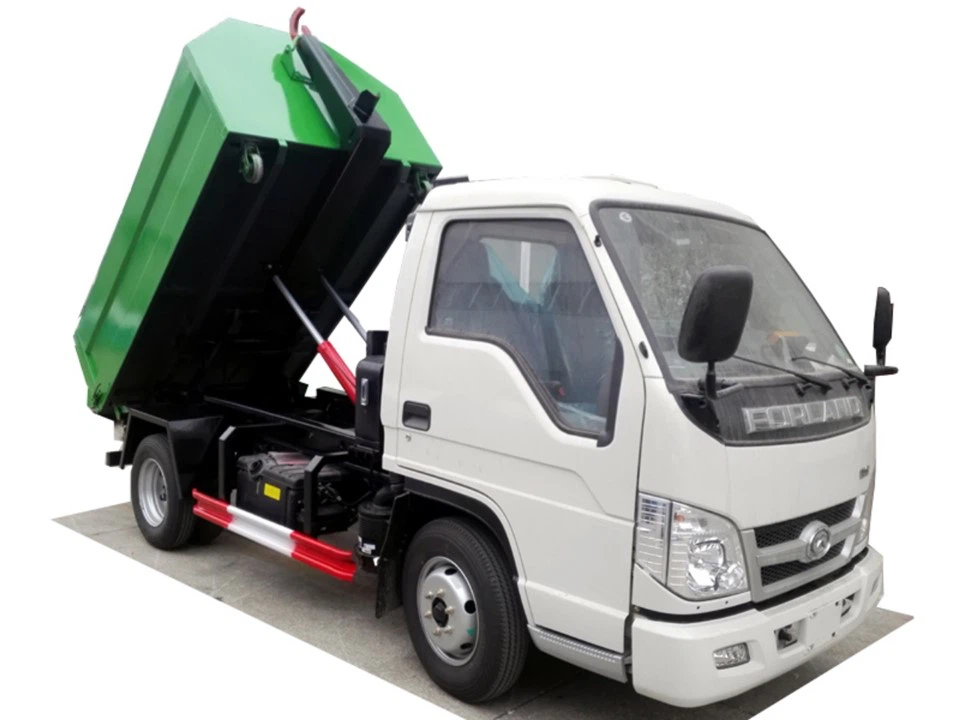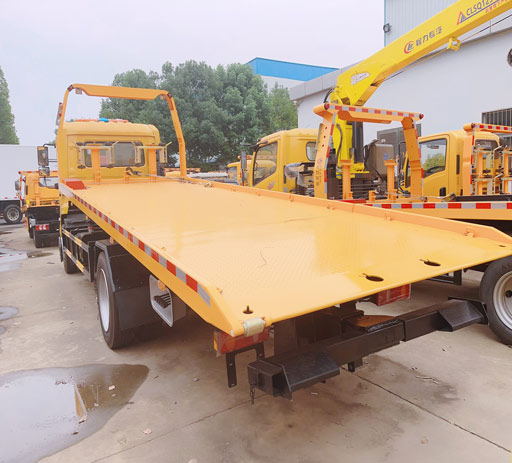Recycling Trucks: The Backbone of Sustainable Waste Management

Introduction
In the face of escalating environmental concerns, recycling has emerged as a pivotal strategy to reduce waste and promote sustainability. Central to the recycling process are recycling trucks, specifically designed to collect, transport, and process recyclable materials. This article delves into the world of recycling trucks, exploring their types, functions, operational mechanics, and their critical role in fostering a greener planet.
Understanding Recycling Trucks
What Are Recycling Trucks?
Recycling trucks are specialized vehicles equipped to handle and transport recyclable materials, such as paper, plastics, metals, and glass. These trucks are essential in municipal solid waste management, ensuring that recyclables are collected efficiently and processed correctly.
Types of Recycling Trucks
1. Front-Loading Trucks
Front-loading trucks are designed for urban environments where space is limited. They feature a front-mounted compactor and are often used in commercial and residential settings. These trucks can compact waste on-site, allowing them to carry more materials at once.
2. Rear-Loading Trucks
Rear-loading trucks have a compartment at the back for waste collection. They are versatile and can be adapted for manual or automated collection methods. These trucks are common in residential areas where recyclables are picked up from curbsides.
3. Side-Loading Trucks
Side-loading trucks have a mechanism that picks up bins from the side. They are designed for efficient operation in congested areas and can often be operated by a single driver. This minimizes labor costs and maximizes efficiency.
4. Multi-Compartment Trucks
Multi-compartment trucks can collect different types of recyclables simultaneously. This is particularly beneficial in regions that encourage source separation, as it reduces the need for sorting at the recycling facility.
The Importance of Recycling Trucks
Environmental Benefits
Recycling trucks play a vital role in reducing landfill waste. By collecting recyclables and ensuring they are processed properly, these trucks help conserve resources, save energy, and lower greenhouse gas emissions associated with waste disposal.
Economic Advantages
Proper recycling practices, aided by efficient recycling trucks, can lead to significant economic benefits. Recycling can create jobs in local economies, reduce disposal costs for municipalities, and generate revenue from the sale of recycled materials.
Community Awareness and Participation
Recycling trucks serve as a visible reminder to communities about the importance of waste separation and recycling. Their presence can encourage residents to participate actively in recycling programs, promoting a culture of sustainability.
The Mechanics of Recycling Trucks
How Recycling Trucks Operate
Understanding the operational mechanics of recycling trucks provides insight into their efficiency and effectiveness. Here are the key components:
- Loading Mechanism: Depending on the type, recycling trucks utilize various loading mechanisms, whether manual or automated, to collect materials.
- Compaction System: Many recycling trucks are equipped with compactors that compress materials to maximize space and reduce the number of trips needed to recycling facilities.
- Vehicle Design: The design of recycling trucks often optimizes aerodynamics to enhance fuel efficiency.
The Route and Collection Schedule
Recycling trucks are typically assigned specific routes and schedules to ensure they efficiently collect materials from various neighborhoods. The route planning process considers population density, types of recyclables, and historical data on participation rates to optimize collection efforts.
Success Stories of Recycling Truck Programs
Case Study 1: San Francisco’s Zero Waste Program
San Francisco has made significant strides toward achieving zero waste by employing a robust recycling truck program. Their approach includes extensive community education, incentivizing businesses to participate, and equipping their fleet with multi-compartment trucks. This initiative has led to a diversion rate of over 80% of the city’s waste away from landfills.
Case Study 2: City of Seattle’s Automated Collection System
Seattle’s automated collection system utilizes advanced side-loading trucks that operate with a single driver. This system has streamlined operations, reduced labor costs, and improved the overall efficiency of recycling pickup. Community feedback indicates a higher satisfaction rate with the automated system.
Challenges Faced by Recycling Trucks
Contamination of Recyclables

One of the significant challenges recycling trucks face is contamination in recyclable materials, which disrupts the recycling process and increases costs. Education and clear labeling can help mitigate this issue.
Budget Constraints
Many municipalities operate under strict budget constraints, which can limit the ability to invest in newer, more efficient recycling trucks. Prioritizing funding for waste management can lead to better recycling outcomes.
Environmental Implications of Fuel Use
Like all heavy-duty vehicles, recycling trucks consume fuel and contribute to emissions. Transitioning to electric or hybrid recycling trucks can address environmental concerns while maintaining efficiency.
Future Trends in Recycling Truck Technology
Electric and Hybrid Recycling Trucks
As municipalities strive to reduce their carbon footprints, electric and hybrid recycling trucks are gaining traction. These vehicles can offer lower operating costs, reduced emissions, and quieter operations—beneficial for residential areas.
Smart Technology and IoT Integration
Advancements in smart technology and the Internet of Things (IoT) can lead to more efficient route planning and waste collection. Implementing sensors and data analytics can provide real-time insights on bin capacity, optimizing collection schedules and reducing fuel consumption.
Best Practices for Municipalities Utilizing Recycling Trucks
Community Engagement

Engaging residents through educational programs can enhance participation in recycling efforts, directly impacting the volume of materials collected by recycling trucks.
Regular Maintenance and Upgrades
Municipalities should prioritize regular maintenance schedules for their recycling trucks to ensure longevity and reliability. Investing in newer models with better fuel efficiency can also yield long-term savings.
Frequently Asked Questions (FAQ)

1. What materials can recycling trucks collect?
Recycling trucks generally collect paper, plastic, metal, and glass. However, specific acceptable materials may vary by municipality, so it’s essential to check with local guidelines.
2. How often do recycling trucks come to my area?
The collection frequency of recycling trucks varies by locality. Many municipalities operate on a weekly or bi-weekly schedule for recycling pickups. Residents should refer to their city’s waste management service for specific schedules.
3. What happens if my recyclables are contaminated?
Contaminated recyclables can disrupt the recycling process. When contamination occurs, the entire load may be sent to a landfill. Therefore, it’s crucial to follow local recycling guidelines for acceptable materials.
4. Are there any penalties for not recycling properly?
Some municipalities have implemented penalties for improper recycling, such as fines or non-collection notices for households that repeatedly contaminate their recycling bins. Education and outreach are often emphasized before penalties are enforced.
5. How can I educate my community about recycling?
Communities can host workshops, distribute educational flyers, and utilize social media campaigns to inform residents about proper recycling practices. Collaboration with local schools and organizations can also enhance outreach efforts.
6. Can businesses use recycling trucks for their waste?
Yes, many recycling services provide options for businesses to use recycling trucks for collecting recyclables. Businesses should contact their local waste management service to understand available options and pricing.
